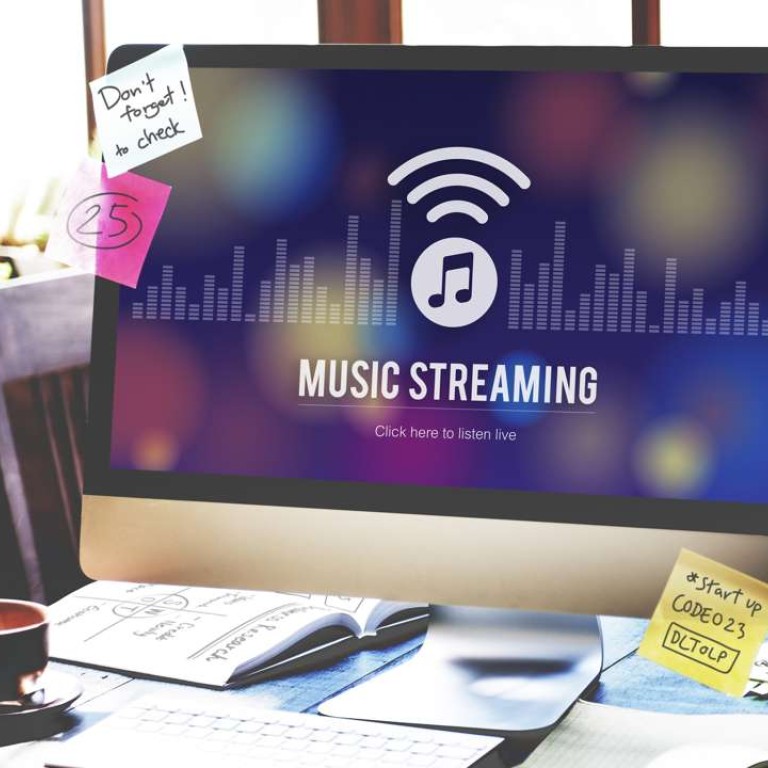
What’s next in digital music: more streaming (but not live gigs), fewer downloads
Music executives discuss fan likes and dislikes (such as single-platform releases, Beyoncé), the power of radio, Spotify and social media influencers, and why most musicians can’t make a living now no one pays for music
How digital music will be shared and consumed in the future took centre stage at the recent New York Media Festival. The four-day event, which took place in downtown New York at the end of last month , gathered representatives from the music, games and television industries, to discuss and predict how digital entertainment is likely to evolve in the next decade.
Media streaming is predicted to replace downloads as the main way we will consume digital music in the future. Panellists agreed there would be a shake-out in the streaming industry over the next 10 years, with some companies failing, and others emerging as winners (though no one was willing to name names.)
In terms of consumers, the accessibility of the music was a talking point – companies want exclusives on songs, but fans don’t like releases to be limited to one streaming company, and feel music should be available on all platforms. Fans aren’t happy if their favourite artist is only available to stream on, for instance, Tidal, even though they are happy to subscribe to a single television channel such as HBO to watch a particular show.

Consumers are confused by the occasional exclusive release, such as Beyoncé’s Lemonade on Tidal, notes Kathy Baker, senior vice-president of digital marketing at Columbia Records.
“It’s a very confusing experience, and in the process, you are losing fans,” she says. “You lose them because you only put the music on one service, and they may not be comfortable with that service.”
The problem is compounded by the fact that neither the label, the artist, nor the fan have a clear idea of where songs are likely to show up in the future, due to the complexity of digital distribution.
One thing that fans do not have much interest in is the live streaming of full concerts, such as the Yahoo concert series that featured rockers Kiss, among others.
“It’s extremely underwhelming. It doesn’t create the same kind of excitement as being there, unless it’s a really big cultural event,” says Alexander Kisch, executive vice-president of business development and business affairs at Vevo.
Live shows are too long for the format, they can be streamed at inconvenient times depending on the listener’s location, and viewers just don’t have the attention span. “People prefer on-demand,” says Baker.
Radio, interestingly, is often seen as old media, but it’s far from dead, and industry research has shown that it’s still the most important way to get new music heard. People like radio because “it’s a friend in the room, or the best friend in your car,” says Owen Grover from iHeart Media.
“The content between the songs is just as important as the songs themselves. Radio is a human-driven product which has an extraordinary emotional component. It’s still the way that people find out about the music that they love,” says Grover.
Even so, social media is having a bigger effect on who buys what than ever before.
“Record companies are taking notice of what the fans think and say,” says Baker, “and it’s important for us to find out who the influencers are.”
Play lists, too, are increasingly important, and being part of a play list on a service such as Spotify can be very useful, panellists agreed.

The elephant in the room – the decline of the music industry due to the ease of distributing bootleg MP3s over the internet – was summarily addressed. Most young consumers feel like they should not have to pay for music any more, even though this means that the musicians will not get paid for making it, those in the industry agreed. If fans can download it for free, they will. There are no signs that the situation is changing.
The industry-wide decline has led to a change in rosters at major labels; they used to sign a number of different acts in the hope of elevating them to stardom; now they prefer to stick with a smaller roster of big stars.
The withdrawal of label support from all but the highest earning musicians has led to the general impoverishment of the creative side of the industry. Most professional musicians and record producers make next to no money from streaming royalties, and can no longer make a sustainable living from their work. That is not likely to change in the next 10 years, said industry panellists.
Things are a lot rosier in the US$104 billion games industry – successful games make US$200 million to US$300 million, according to panellists from the sector, who noted that 10 companies, including the likes of Nintendo and Electronic Arts, take nearly all the market, and have become so well established, they are unlikely to be challenged – at least not by Western companies.
However, cash-rich Chinese companies such as Tencent are starting to flex their muscles.
“We will be able to bridge the gap between East and West with these huge amounts of capital. It’s fascinating,” says Chris Petrovic senior vice-president of corporate and business development at Zynga, an online and mobile games company.
